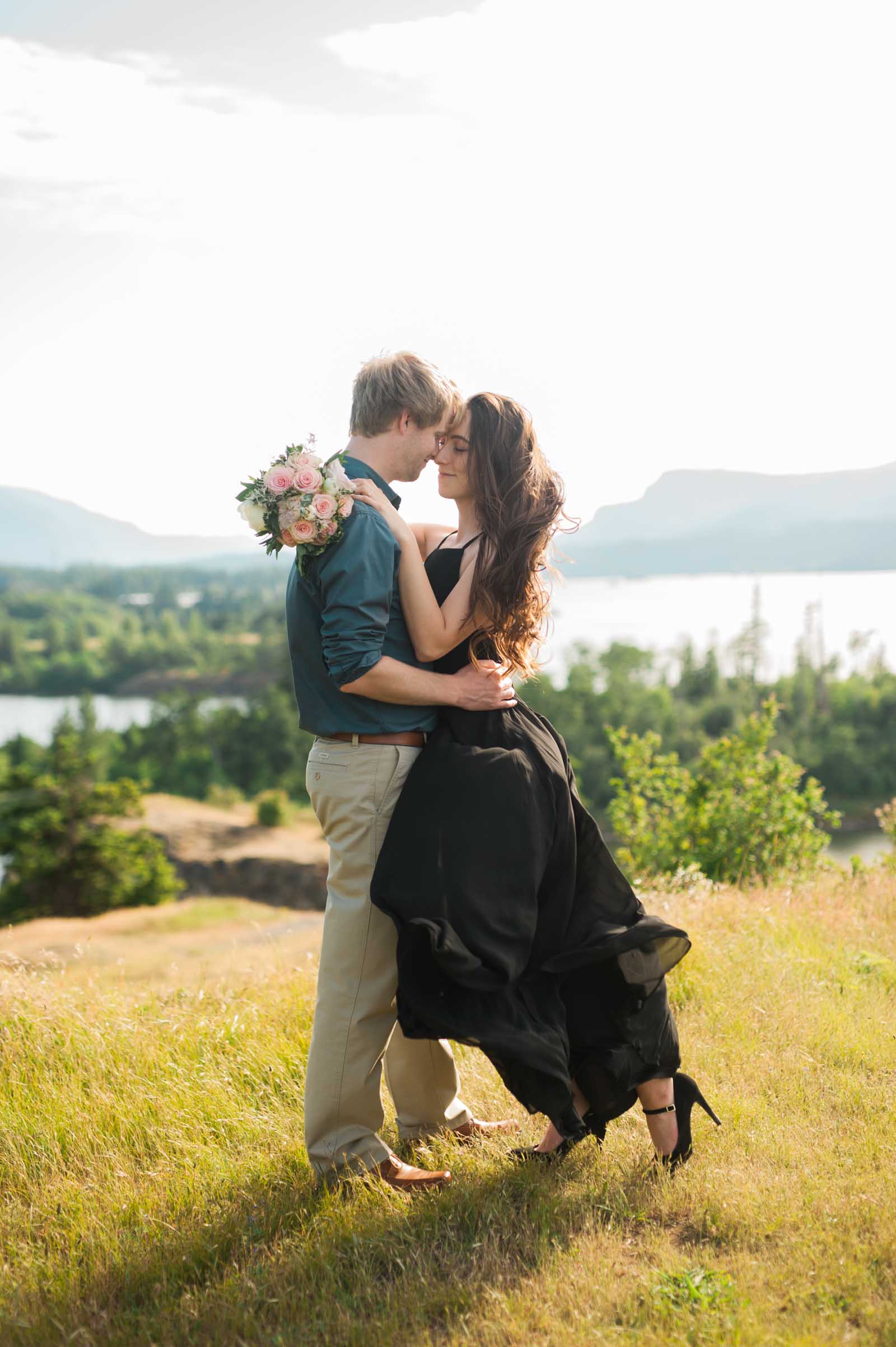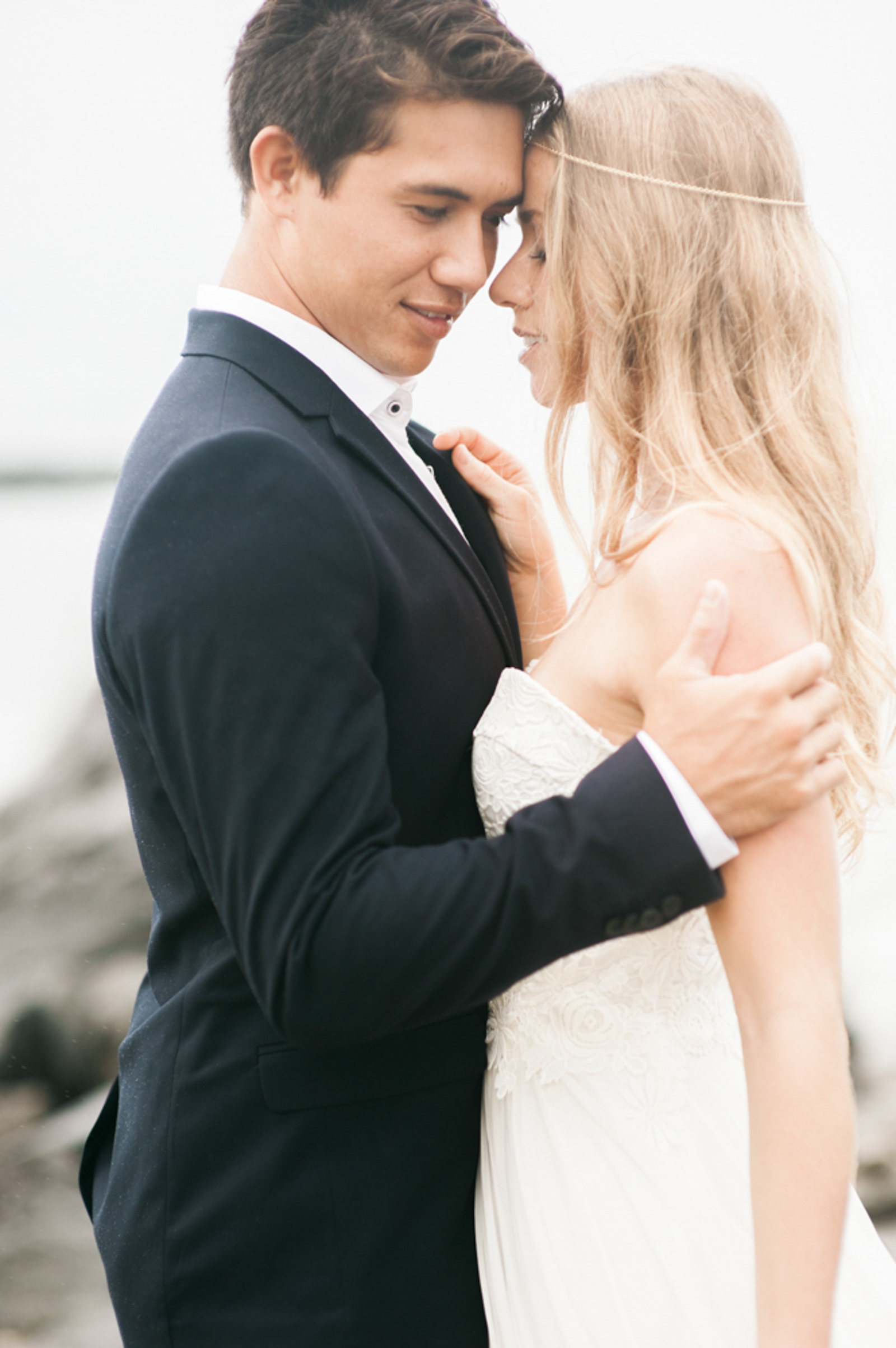Peering through a camera’s lens can reveal a captivating new perspective on life, and embarking on a career in photography allows you to explore these dimensions extensively. Whether you aim to become a professional photographer or delve into the bustling world of a freelance photographer, the possibilities to capture and manipulate reality are endless. Engaging in photography workshops can further enhance your skills while providing a fertile ground for creativity and innovation. As you immerse yourself into this visual art form, each snapshot is more than an image; it’s an opportunity to share stories, evoke emotions, and build a profound connection with the world.
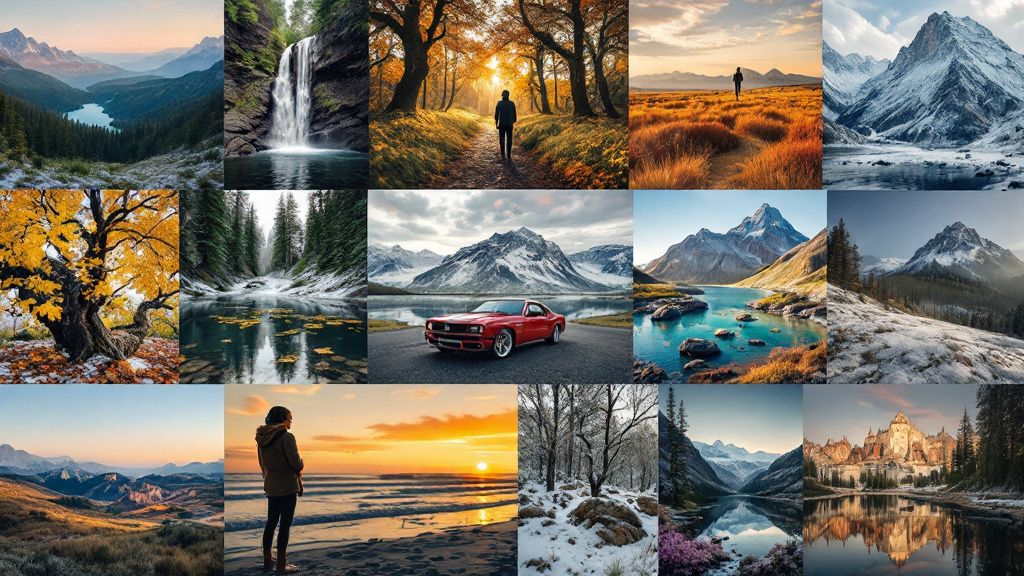
The Artistic Journey of Photography
Embarking on the artistic journey of photography involves more than just capturing images; it’s a transformative experience. To truly understand this creative path, you need to shift your mindset from simply taking pictures to crafting visual stories. This fresh perspective allows you to delve deeper into the nuances of light, composition, and emotion, ultimately shaping your unique style as a photographer.
Professional photography is as much about the art as it is about the technical skills acquired through experience and learning. Participating in photography workshops can be instrumental in honing your craft, offering insights into the latest techniques and trends. These gatherings not only provide valuable education but also foster a community of like-minded individuals eager to share experiences and knowledge.
As a freelance photographer, you navigate the dynamic tides of the photography world, equipped with the flexibility to explore diverse areas such as portrait, landscape, or commercial photography. This career in photography offers the freedom to pursue projects that resonate with your artistic vision, allowing you to express creativity without bounds or constraints. Embracing this path involves continuous learning, evolution, and a relentless curiosity to explore new horizons through your lens.
Educational Pathways for Aspiring Photographers
Pursuing educational pathways in photography offers diverse options tailored to different learning styles and career aspirations. From traditional degree programs to specialized workshops, you can select the route that aligns with your goals. Enrolling in a Bachelor of Fine Arts in photography program can provide a comprehensive understanding of both technical skills and creative expression, allowing you to develop a solid foundation essential for professional photography.
Looking at photography education through the lens of experiential learning, we can see that hands-on workshops and apprenticeships offer invaluable opportunities. These practical experiences allow you to apply theoretical knowledge in real-world settings, fostering growth and innovation. Photography workshops often feature industry experts who impart wisdom and skills that are crucial in crafting your style and building a successful career in photography.
By choosing a path that combines education with practical experience, you open doors to becoming a well-rounded freelance photographer. This balance prepares you to tackle the ever-evolving demands of the photography industry. Whether through formal education or on-the-job learning, each educational pathway offers the necessary tools to embark on an enriching journey in the world of photography, helping you transform your passion into a thriving vocation.
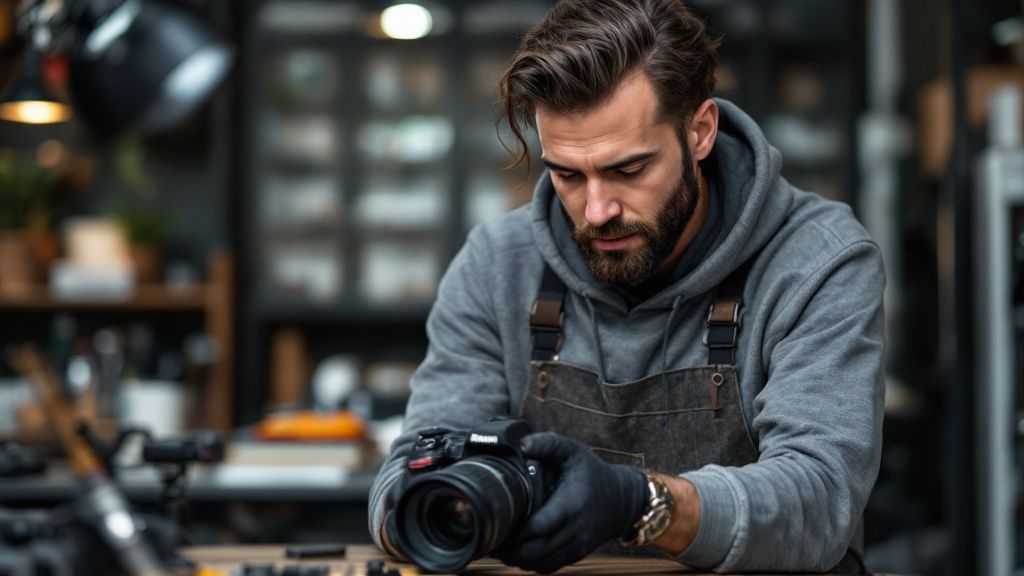
Essential Skills for Successful Photographers
To excel in the field of professional photography, cultivating a varied skill set is crucial. Technical proficiency with a camera and editing software forms the foundation, allowing you to effectively execute your creative vision. Understanding settings like ISO, shutter speed, and aperture helps capture images that resonate with your artistic intent. Complementary knowledge of editing tools such as Adobe Photoshop or Lightroom further refines your work, giving it a polished finish.
Beyond technical skills, having a keen eye for detail and composition can set your work apart. This skill ensures that every element within your frame contributes to the mood or story you wish to convey. For a freelance photographer, improvisation and adaptability are indispensable, enabling you to thrive in diverse settings and embrace spontaneous opportunities that arise in the ever-changing sphere of photography.
Communication plays a pivotal role in establishing rapport with clients and subjects. Engaging effectively can lead to more genuine and impactful images, whether you’re shooting portraits, events, or landscapes. For example, in fashion photography, forging a strong connection with models can breathe life into editorial spreads, enhancing the narrative quality of each photograph.
Business acumen is another vital component for sustainable success. Mastery in marketing and client management translates to a thriving career in photography. Building a strong personal brand and maintaining client relationships can lead to consistent work and growth. Attending photography workshops or networking events provides valuable insights and opportunities to refine these skills.
Altogether, developing these essential skills empowers you to navigate the multifaceted world of photography. Whether it’s handling the technical aspects, harnessing your creativity, or strategically managing your career, these competencies combine to form the backbone of successful photographers, opening up a world where passion and profession intersect seamlessly.
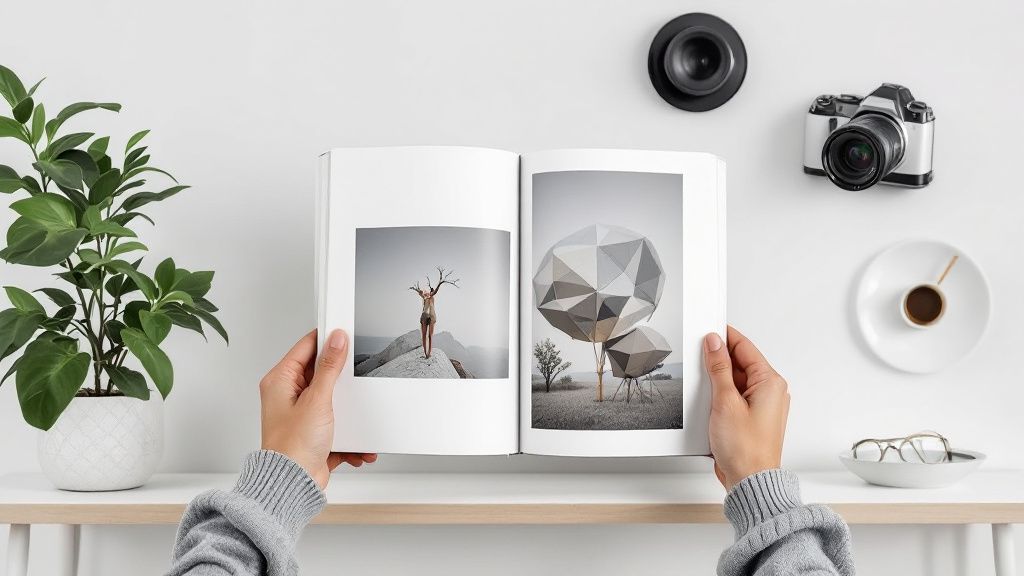
Building a Strong Portfolio
Constructing a strong portfolio is critical for showcasing your skills and establishing credibility in your photography career. Your portfolio serves as a visual résumé, highlighting your best work and range of abilities. Curating a collection that reflects your style and versatility, whether in landscape, portrait, or commercial photography, helps potential clients or employers gauge the quality and creativity you bring to a project.
In the next few years, with the rise of digital platforms and social media, portfolios are likely to evolve into dynamic online representations. As a freelance photographer, you might integrate interactive elements and multimedia to engage your audience effectively. This trend encourages you to stay updated with digital innovations, ensuring your portfolio remains relevant and impactful in an increasingly connected world.
Focusing on quality over quantity is essential when selecting pieces for your portfolio. Choose images that tell a story or evoke emotion, as these are more likely to resonate with viewers. Attending photography workshops can provide you with fresh perspectives and inspiration, helping you refine your selections. A balanced portfolio, combining technical prowess and creative flair, can set you apart and elevate your career in photography.
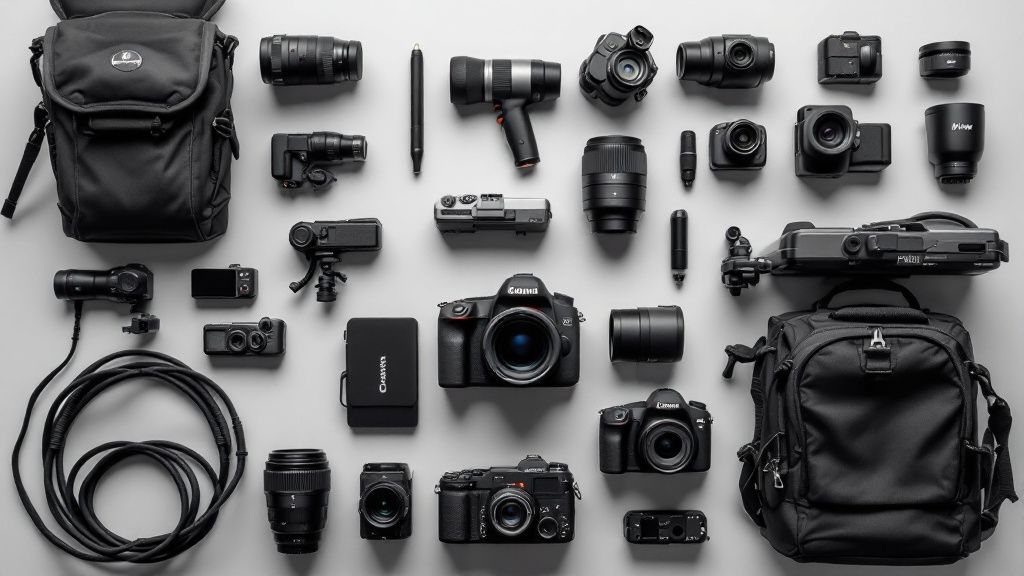
Professional Equipment and Gear Recommendations
Investing in the right equipment and gear is foundational for any aspiring professional photographer. High-quality cameras, such as DSLRs or mirrorless models, provide the versatility and image quality needed to meet different creative challenges. Paired with a range of lenses, from wide-angle to telephoto, you can capture everything from sweeping landscapes to detailed portraits with precision.
While many believe that success in photography hinges primarily on owning the latest gear, there’s a strong case for mastering the equipment you already have. Understanding the capabilities and limitations of your current tools can often lead to more creative and impactful work. This approach allows you to focus on technique and artistic vision rather than constantly chasing the latest technological trends.
In addition to cameras and lenses, don’t overlook accessories that enhance your professional setup. Tripods, external flashes, and reflectors can significantly improve the quality of your work by offering stability, control over lighting, and added depth. Participating in photography workshops can introduce you to these tools and provide hands-on experience, ensuring you make informed decisions about your gear investments.
Equipping yourself with the right gear, both primary and supplementary, empowers you to excel in a career in photography, exploring different styles and building a diverse portfolio. Each piece of equipment is an integral part of your toolkit, providing the means to bring your creative visions to life.
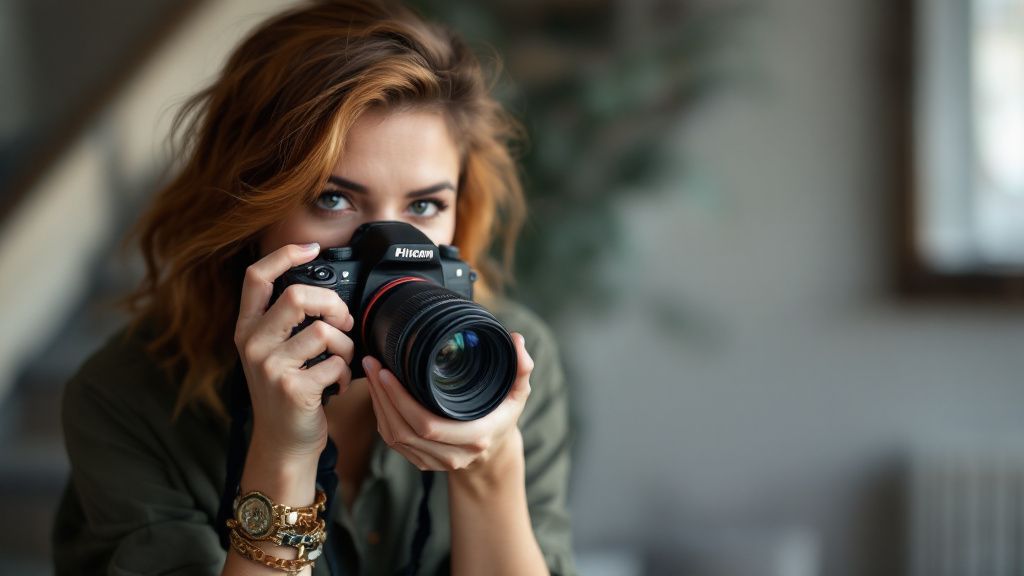
Creating a Personal Brand as a Photographer
Establishing a personal brand as a photographer is a crucial step toward distinguishing yourself in a competitive industry. Your brand conveys who you are as an artist and what makes your work unique. One of the challenges in creating a personal brand is maintaining consistency across various platforms while showcasing authenticity. This issue can be addressed through a clear visual style and consistent messaging. Engaging content that reflects your creative strengths ensures that prospective clients recognize and remember your work.
Developing a strong online presence is integral to branding, especially for a freelance photographer. Professional photography portfolios and engaging social media accounts serve as digital storefronts for your work. Incorporating these elements, along with participating in photography workshops and networking events, enhances visibility and credibility. By sharing behind-the-scenes insights and highlighting professional achievements, you reinforce your brand identity, making it accessible and relatable. Remember, a well-defined personal brand lays the foundation for a successful career in photography, providing a pathway to build a lasting impression in the minds of your audience.


